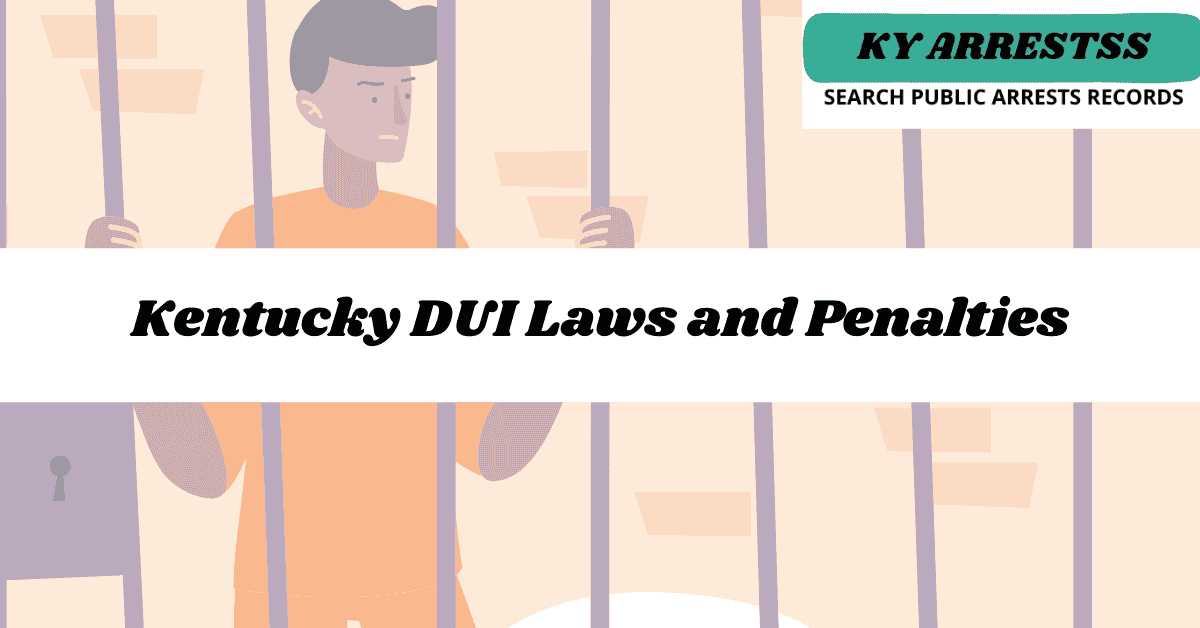Kentucky DUI Laws and Penalties
Driving under the influence (DUI) is a serious offense that can have severe consequences, both legally and personally. Each state in the United States has its own set of laws and penalties regarding DUI, and Kentucky is no exception. Understanding Kentucky DUI laws and penalties is crucial for every driver to ensure they abide by the law and avoid potentially life-altering consequences.
Understanding DUI Laws in Kentucky
In Kentucky, the legal blood alcohol concentration (BAC) limit for most drivers is 0.08%. This means that if you are operating a vehicle with a BAC of 0.08% or higher, you are considered legally impaired and can be charged with a DUI. It’s important to note that commercial drivers and drivers under the age of 21 are subject to lower BAC limits.
Kentucky also has an implied consent law, which means that by obtaining a driver’s license, you have already consented to submit to a chemical test if suspected of DUI. Refusing to take a breathalyzer or blood test can result in automatic license suspension.
Penalties for DUI Offenses
The penalties for DUI offenses in Kentucky vary depending on the circumstances of the offense and whether it is a first, second, or subsequent offense.
First Offense DUI
If convicted of a first offense DUI in Kentucky, you may face fines ranging from $200 to $500, up to 30 days in jail, and a license suspension of 30 to 120 days. Additionally, you may be required to attend mandatory alcohol education programs at your own expense.
Second Offense DUI
A second offense DUI carries steeper penalties, including increased fines, longer jail time (up to six months), and a longer license suspension period. In some cases, the court may also require the installation of an ignition interlock device on your vehicle.
Aggravating Factors
Certain factors can exacerbate DUI penalties in Kentucky. These include having a high BAC at the time of arrest, driving with a minor in the vehicle, and having previous DUI convictions on your record.
Felony DUI
In Kentucky, a DUI offense becomes a felony if certain conditions are met, such as causing serious injury or death while driving under the influence. Felony DUI convictions carry harsher penalties, including significant prison time and fines.
Refusing Breathalyzer Test
Refusing to submit to a breathalyzer or blood test in Kentucky can result in administrative penalties, such as automatic license suspension, regardless of whether you are ultimately convicted of DUI.
DUI and Drug Use
Kentucky’s DUI laws also extend to driving under the influence of drugs, not just alcohol. Penalties for drug-related DUI offenses are similar to those for alcohol-related DUIs and can have equally serious consequences.
Impact on Employment and Education
A DUI conviction in Kentucky can have far-reaching consequences beyond legal penalties. It can affect your ability to obtain or maintain professional licenses and may even impact college admissions.
Ignition Interlock Devices
In some cases, Kentucky courts may require the installation of an ignition interlock device on your vehicle as a condition of license reinstatement. These devices require you to pass a breathalyzer test before starting your car, serving as a deterrent against future DUI offenses.
Getting Legal Help
If you are facing DUI charges in Kentucky, it’s crucial to seek legal representation from an experienced DUI attorney. A skilled attorney can help you understand your rights, navigate the legal process, and mount a strong defense against the charges.
Avoiding DUI
The best way to avoid DUI charges and their accompanying penalties is to refrain from driving under the influence altogether. If you plan to drink, designate a sober driver, use ridesharing services like Uber or Lyft, or take advantage of public transportation options.
FAQs
What constitutes a DUI in Kentucky?
In Kentucky, a driver is considered to be driving under the influence (DUI) if their blood alcohol concentration (BAC) is 0.08% or higher for adults operating non-commercial vehicles. For drivers under 21 years old, any detectable amount of alcohol in their system can result in a DUI charge.
What are the penalties for a first-time DUI offense in Kentucky?
For a first-time DUI offense in Kentucky, penalties may include a fine ranging from $200 to $500, imprisonment for 48 hours to 30 days (which may be substituted with community service), license suspension for 30 to 120 days, and completion of an alcohol or substance abuse program. The specific penalties can vary depending on the circumstances of the offense.
How are subsequent DUI offenses punished in Kentucky?
Subsequent DUI offenses within a 10-year period carry harsher penalties. For a second offense, the fine may range from $350 to $500, imprisonment for 7 days to 6 months (with at least 48 hours of mandatory imprisonment), license suspension for 12 to 18 months, and mandatory completion of a substance abuse program.
What are the penalties for refusing a breathalyzer or blood test in Kentucky?
In Kentucky, declining to undergo a breathalyzer or blood test can lead to an automatic license suspension. Initial offenses may incur suspensions ranging from 30 to 120 days, while subsequent violations could result in longer periods of suspension. This consequence underscores the state’s strict stance on drunk driving and emphasizes the importance of complying with sobriety testing protocols.
Can a DUI conviction in Kentucky be expunged?
As of 2022, Kentucky law does not allow for the expungement of DUI convictions. Once convicted of a DUI offense, it remains on the individual’s record permanently. However, it’s essential to consult with a legal expert for the most current information on expungement laws and any potential changes that may have occurred since then.
Conclusion
Kentucky DUI laws and penalties are designed to deter and punish individuals who drive under the influence of alcohol or drugs. By understanding these laws and making responsible choices, you can protect yourself and others on the road from the devastating consequences of DUI. Remember, it’s always better to err on the side of caution and find a safe alternative to driving if you’ve been drinking.







